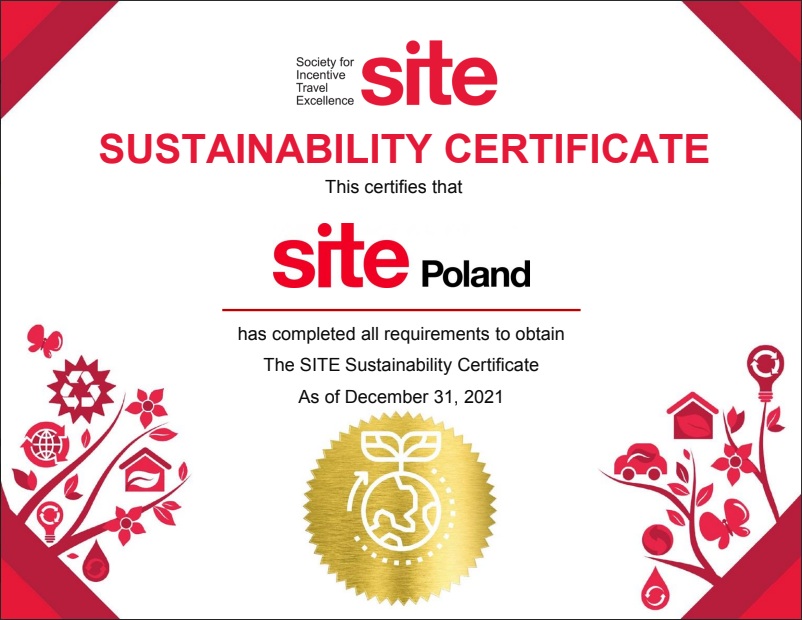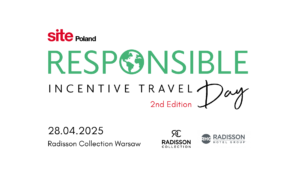
Our mission is to motivate all stakeholders in the incentive travel market to take action and define their role in the process of conscious design of sustainable incentive travel programs. As association members, incentive travel organizers and service providers, we join efforts, educate and inspire.

Our initiatives in 2020 were appreciated by SITE GLOBAL, which organizes the SITE CHAPTER EXCELLENCE AWARDS competition in various categories every year. The Site Polska Association was the only one to receive an award in the EXCELLENCE IN SUSTAINABLITY category. This is a great distinction, and at the same time a commitment to continue the initiatives undertaken.
In 2021, our association received a SUSTAINABILITY CERTIFICATE.

Our commitment
Define the main challenges faced by incentive tour operators in the area of sustainable tourism.
To raise awareness of the impact of tourism on the environment, on local communities, on the economy in Poland and in the countries visited worldwide.
To create a platform for industry dialogue between Polish incentive agencies, airlines, hotels, local DMCs, representatives of foreign destinations and Principals for discussions on sustainable tourism.

Identification and publication of good practices in creating a sustainable tourism product in Poland and worldwide.
Sharing inspiration for implementing the principles of responsible travel by individual tourists in Poland and abroad.
An invitation to organizations and companies to co-create a strong, valuable Polish incentive tourism market.

Why is this important to us?

The environmental impact of tourism
In 1950, 25 million international tourist arrivals were recorded, in 1970 it was already 166 million and 20 years later, in 1990, it had risen as high as 435 million. Between 1990 and 2018, the number reached 1.442 billion. By 2030, 1.8 billion tourist arrivals are forecast. Every trip leaves a footprint. The negative impact of tourism on the environment is clear. It is the depletion of local natural resources, over-consumption of these resources, pollution and waste, changes in water management, loss of natural habitats and increased pressure on endangered species of flora and fauna. These impacts can gradually destroy the environmental resources on which tourism itself also depends.

Impact of tourism on climate
Tourism contributes more than 5% of global greenhouse gas emissions, 90% of which are due to transport. By 2030, CO2 emissions from tourism are expected to increase by 25% compared to 2016, from 1,597 million tons to 1,998 million tons.

Tourism and society
Tourism can benefit the local community because it creates jobs and an incentive to preserve history, culture, care for local heritage sites and customs. It also stimulates in visitors an interest in local crafts, traditional activities, songs, dance and legends. Tourism teaches tolerance, understanding for other cultures and customs. It is important to use these resources skillfully, striking a balance between authenticity and commercialism. The phenomenon of overtourism and its negative effects also shows that it is worthwhile to limit the number of arrivals in order to reduce these effects on all the inhabitants of a place.





























